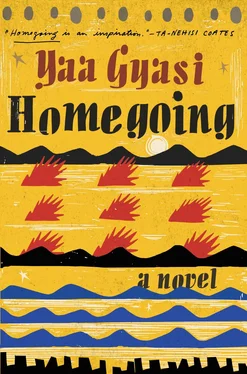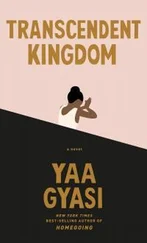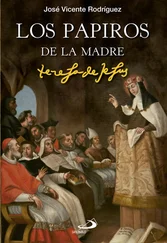“These are the women. My wives and children, the mothers and daughters,” Abeeku said. The smaller, more timid white man watched him carefully as he said this and then turned to the white chief and spoke their strange tongue. The white chief nodded and smiled at all of them, looking carefully at each woman and saying hello in his poor Fante.
When his “hello” reached Effia, she couldn’t help but giggle. The other women shushed her, and embarrassment like heat began to move into her cheeks.
“I’m still learning,” the white chief said, resting his eyes on Effia, his Fante an ugly sound in her ears. He held her gaze for what seemed like minutes, and Effia felt her skin grow even hotter as the look in his eyes turned into something more wanton. The dark brown circles of his irises looked like large pots that toddlers could drown in, and he looked at Effia just like that, as though he wanted to keep her there, in his drowning eyes. Color quickly flooded into his cheeks. He turned to the other white man and spoke.
“No, she is not my wife,” Abeeku said after the man had translated for him, his voice not bothering to hide his annoyance. Effia hung her head, embarrassed that she had done something to cause Abeeku shame, embarrassed he could not call her wife. Embarrassed, too, that he had not called her by name: Effia the Beauty. She wanted desperately then to break her promise to Baaba and announce herself as the woman she was, but before she could speak, the men walked away, and her nerve faded as the white chief looked over his shoulder at her and smiled.
—
His name was James Collins, and he was the newly appointed governor of the Cape Coast Castle. Within a week, he had come back to the village to ask Baaba for Effia’s hand in marriage. Cobbe’s rage at the proposal filled every room like hot steam.
“She is all but promised to Abeeku!” he yelled at Baaba when Baaba told him that she was considering the offer.
“Yes, but Abeeku cannot marry her until her blood comes, and we have been waiting years now. I tell you, husband, I think she was cursed in that fire, a demon who will never become a woman. Think about it. What creature is that beautiful but cannot be touched? All of the signs of womanhood are there, and yet, still, nothing. The white man will marry her regardless. He does not know what she is.”
Effia had heard the white man talking to her mother earlier that day. He would pay thirty pounds up front and twenty-five shillings a month in tradable goods to Baaba as bride gift. More than even Abeeku could offer, more than had been offered for any other Fante woman in this village or the next.
Effia could hear her father pacing all throughout the evening. She even awoke the next morning to that same sound, the steady rhythm of his feet on the hard clay earth.
“We must make Abeeku think it was his idea,” he finally said.
And so, the chief was called to their compound. He sat beside Cobbe as Baaba told him her theory, that the fire that had destroyed so much of their family’s worth had also destroyed the child.
“She has the body of a woman, but something evil lurks in her spirit,” Baaba said, spitting on the ground for emphasis. “If you marry her, she will never bear you children. If the white man marries her, he will think of this village fondly, and your trade will prosper from it.”
Abeeku rubbed his beard carefully as he thought about it. “Bring the Beauty to me,” he said finally. Cobbe’s second wife brought Effia into the room. She was trembling and her stomach pained her so much that she thought she might empty her bowels right there in front of everyone.
Abeeku stood up so that he was facing her. He ran his fingers along the full landscape of her face, the hills of her cheeks, the caves of her nostrils. “A more beautiful woman has never been born,” he said finally. He turned to Baaba. “But I see that you are right. If the white man wants her, he may have her. All the better for our business with them. All the better for the village.”
Cobbe, big, strong man that he was, began to weep openly, but Baaba stood tall. She walked over to Effia after Abeeku had left and handed her a black stone pendant that shimmered as though it had been coated in gold dust.
She slipped it into Effia’s hands and then leaned into her until her lips were touching Effia’s ear. “Take this with you when you go,” Baaba said. “A piece of your mother.”
And when Baaba finally pulled away, Effia could see something like relief dancing behind her smile.
*
Effia had passed by the Cape Coast Castle only once, when she and Baaba ventured out of their village and into the city, but she had never been in it before the day of her wedding. There was a chapel on the ground level, and she and James Collins were married by a clergyman who had asked Effia to repeat words she didn’t mean in a language she didn’t understand. There was no dancing, no feasting, no bright colors, slicked hair, or old ladies with wrinkled and bare breasts throwing coins and waving handkerchiefs. Not even Effia’s family had come, for after Baaba had convinced them all that the girl was a bad omen, no one wanted anything to do with her. The morning she left for the Castle, Cobbe had kissed the top of her head and waved her away, knowing that the premonition of the dissolution and destruction of the family lineage, the premonition that he had had the night of the fire, would begin here, with his daughter and the white man.
For his part, James had done all he could to make Effia comfortable. She could see how much he tried. He had gotten his interpreter to teach him even more words in Fante so that he could tell her how beautiful she was, how he would take care of her as best he could. He had called her what Abeeku called her, Effia the Beauty.
After they were married, James gave Effia a tour of the Castle. On the ground floor of the north wall there were apartments and warehouses. The center held the parade ground, soldiers’ quarters, and guardroom. There was a stockyard, a pond, a hospital. A carpenter’s shop, smithy, and kitchen. The Castle was itself a village. Effia walked around with James in complete awe, running her hands along the fine furniture made from wood the color of her father’s skin, the silk hangings so smooth they felt like a kiss.
She breathed everything in, stopping at the gun platform that held huge black canons facing out toward the sea. She wanted to rest before James led her up his private stairwell, and so she laid her head down against one of those cannons for just a moment. Then she felt a breeze hit her feet from small holes in the ground.
“What’s below?” she asked James, and the mangled Fante word that came back to her was “cargo.”
Then, carried up with the breeze, came a faint crying sound. So faint, Effia thought she was imagining it until she lowered herself down, rested her ear against the grate. “James, are there people down there?” she asked.
Quickly, James came to her. He snatched her up from the ground and grabbed her shoulders, looking straight into her eyes. “Yes,” he said evenly. It was one Fante word he had mastered.
Effia pulled away from him. She stared back into his piercing eyes. “But how can you keep them down there crying, enh?” she said. “You white people. My father warned me about your ways. Take me home. Take me home right now!”
She didn’t realize she’d been screaming until she felt James’s hand on her mouth, pushing her lips as though he could force the words back in. He held her like that for a long time, until she had calmed. She didn’t know if he understood what she said, but she knew then, just by the faint push of his fingers on her lips, that he was a man capable of hurting, that she should be glad to be on one side of his meanness and not another.
Читать дальше

![Ally Carter - [Gallagher Girls 01] I'd Tell You I Love You But Then I'd Have to Kill You](/books/262179/ally-carter-gallagher-girls-01-i-d-tell-you-i-lo-thumb.webp)










